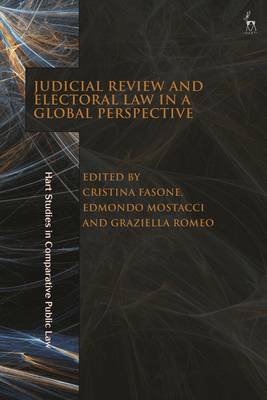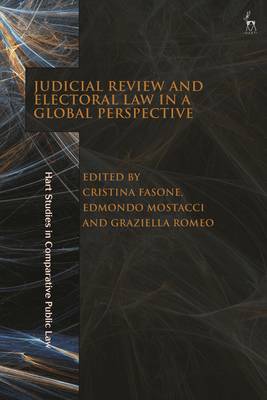
- Afhalen na 1 uur in een winkel met voorraad
- Gratis thuislevering in België vanaf € 30
- Ruim aanbod met 7 miljoen producten
- Afhalen na 1 uur in een winkel met voorraad
- Gratis thuislevering in België vanaf € 30
- Ruim aanbod met 7 miljoen producten
Zoeken
Judicial Review and Electoral Law in a Global Perspective
€ 228,95
+ 457 punten
Omschrijving
This book fills a gap in constitutional law by examining the global trend towards the substantive constitutional adjudication of electoral legislation. It explores the premises on which this judicial scrutiny is grounded, seeks to explain the trend, and examines its consequences for representative democracy.
The book offers a comparative analysis of the issue, investigating how the exchange of models and arguments among judges has catalysed the progressive departure from a traditionally deferential approach to electoral norms-an approach that still persists in a few jurisdictions.
To accomplish this, the book delves into the democratic foundations of electoral systems and their evolution. It also explores the methodological choices that constitutional judges face when dealing with electoral legislation. This groundwork sets the stage for an in-depth review of case law in more than fifteen legal systems spanning North and South America, Africa, Asia, Oceania, and Europe. The objective is to identify the underlying concept of democracy that courts aim to promote. The authors critically discuss the varying ideas of democracy evident in each jurisdiction, including the use of constitutional borrowing, and they analyse the effects of judgments on the relationship between courts, representative institutions, and voters.
Given its global scope, the combination of theoretical and practical approaches, and the comprehensive comparative assessment it provides, this work is of interest to academics in the fields of law, political science, and philosophy. It is also relevant for policymakers and judges in constitutional democracies across continents.
The book offers a comparative analysis of the issue, investigating how the exchange of models and arguments among judges has catalysed the progressive departure from a traditionally deferential approach to electoral norms-an approach that still persists in a few jurisdictions.
To accomplish this, the book delves into the democratic foundations of electoral systems and their evolution. It also explores the methodological choices that constitutional judges face when dealing with electoral legislation. This groundwork sets the stage for an in-depth review of case law in more than fifteen legal systems spanning North and South America, Africa, Asia, Oceania, and Europe. The objective is to identify the underlying concept of democracy that courts aim to promote. The authors critically discuss the varying ideas of democracy evident in each jurisdiction, including the use of constitutional borrowing, and they analyse the effects of judgments on the relationship between courts, representative institutions, and voters.
Given its global scope, the combination of theoretical and practical approaches, and the comprehensive comparative assessment it provides, this work is of interest to academics in the fields of law, political science, and philosophy. It is also relevant for policymakers and judges in constitutional democracies across continents.
Specificaties
Betrokkenen
- Uitgeverij:
Inhoud
- Aantal bladzijden:
- 392
- Taal:
- Engels
- Reeks:
Eigenschappen
- Productcode (EAN):
- 9781509957880
- Verschijningsdatum:
- 21/03/2024
- Uitvoering:
- Hardcover
- Formaat:
- Genaaid
- Afmetingen:
- 156 mm x 234 mm
- Gewicht:
- 716 g

Alleen bij Standaard Boekhandel
+ 457 punten op je klantenkaart van Standaard Boekhandel
Beoordelingen
We publiceren alleen reviews die voldoen aan de voorwaarden voor reviews. Bekijk onze voorwaarden voor reviews.







